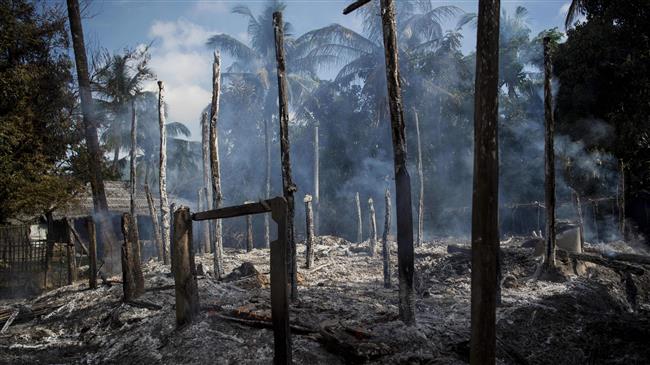
RNA - According to an assessment by the International Organization for Migration (IOM), food shortages were the most recurrent issue affecting the refugees' mental health while inadequate shelter, poor sanitation and hygiene were also frequently cited as concerns.
Focus groups involving 300 people living in the densely populated "mega-camp" in Cox's Bazar District found that 38 percent of children and 74 percent of adults "felt sad always." Suicidal thoughts were reported by four percent of youth.
Olga Rebolledo, a mental health and psychosocial support coordinator with the IOM, said, "It's an alert that youth are neglected from services."
"They don't have any options here right now, no possibilities for jobs or education," Rebolledo said.
The IOM study also said "not being recognized as citizens" was psychologically destabilizing for 40 percent of refugees. "We can't do anything about that," said Rebolledo. "What we can do is show them that they have resources and a very strong sense of identity as a community."
At least 63 percent of adult participants are traumatized and constantly grieving for lost family members.
One elderly Rohingya woman said she could not stop thinking about her son and husband who were killed by soldiers. "I dreamed about my son twice," she said, adding, "Once he was bringing me seeds to plant, and the second time he was hiding behind a wall."
One quarter of children in the "mega-camp" are acutely malnourished, with 7.5 percent at a high risk of death from severe malnutrition.
Researchers from the United States' Centers for Disease Control and Prevention, the charity Action Against Hunger, and the UN refugee agency (UNHCR) said more than 43 percent of children were chronically malnourished.
But improving living standards is a challenge for aid agencies scrambling to provide services to the fastest growing refugee population in decades.
According to the UNHCR, the population in the camp swelled to almost 600,000 from about 19,000 in four months.
About 700,000 Rohingya Muslims have crossed into Bangladesh from Myanmar since August 25, 2017, when the military began a crackdown in Rakhine state.
According to Press TV, Myanmar’s government troops have been committing killings, making arbitrary arrests, and carrying out arson attacks in Muslim villages in Rakhine over the past months.
The Rohingya have lived in Myanmar for generations but are denied citizenship and are branded illegal immigrants from Bangladesh, which likewise denies them citizenship.
The UN has also described the 1.1-million-strong Muslim community as the most persecuted minority in the world.
847/940